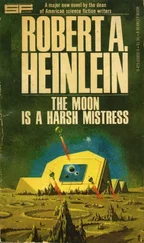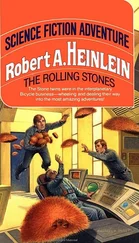Robert Heinlein - The Past Through Tomorrow
Здесь есть возможность читать онлайн «Robert Heinlein - The Past Through Tomorrow» весь текст электронной книги совершенно бесплатно (целиком полную версию без сокращений). В некоторых случаях можно слушать аудио, скачать через торрент в формате fb2 и присутствует краткое содержание. Жанр: Фантастика и фэнтези, на английском языке. Описание произведения, (предисловие) а так же отзывы посетителей доступны на портале библиотеки ЛибКат.
- Название:The Past Through Tomorrow
- Автор:
- Жанр:
- Год:неизвестен
- ISBN:нет данных
- Рейтинг книги:5 / 5. Голосов: 1
-
Избранное:Добавить в избранное
- Отзывы:
-
Ваша оценка:
- 100
- 1
- 2
- 3
- 4
- 5
The Past Through Tomorrow: краткое содержание, описание и аннотация
Предлагаем к чтению аннотацию, описание, краткое содержание или предисловие (зависит от того, что написал сам автор книги «The Past Through Tomorrow»). Если вы не нашли необходимую информацию о книге — напишите в комментариях, мы постараемся отыскать её.
The Past Through Tomorrow — читать онлайн бесплатно полную книгу (весь текст) целиком
Ниже представлен текст книги, разбитый по страницам. Система сохранения места последней прочитанной страницы, позволяет с удобством читать онлайн бесплатно книгу «The Past Through Tomorrow», без необходимости каждый раз заново искать на чём Вы остановились. Поставьте закладку, и сможете в любой момент перейти на страницу, на которой закончили чтение.
Интервал:
Закладка:
But these second transmutations were comparatively safe; it was the original splitting of the uranium nucleus, with the release of the awe-inspiring energy that bound it together-an incredible two hundred million electron volts-that was important-and perilous.
For, while uranium was used to breed other fuels by bombarding it with neutrons, the splitting itself gives up more neutrons which in turn may land in other uranium nuclei and split them. If conditions are favorable to a progressively increasing reaction of this sort, it may get out of hand, build up in an unmeasurable fraction of a micro-second into a complete atomic explosion-an explosion which would dwarf an atom bomb to pop-gun size; an explosion so far beyond all human experience as to be as completely incomprehensible as the idea of personal death. It could be feared, but not understood.
But a self-perpetuating sequence of nuclear splitting, just wider the level of complete explosion, was necessary to the operation of the breeder plant. To split the first uranium nucleus by bombarding it with neutrons from the beryllium target took more power than the death of the atom gave up. In order that the breeder pile continue to operate it was imperative that each atom split by a neutron from the beryllium target should cause the splitting of many more.
It was equally imperative that this chain of reactions should always tend to dampen, to die out. It must not build up, or the uranium mass would explode within a time interval too short to be measured by any means whatsoever.
Nor would there be anyone left to measure it.
The atomic engineer on duty at the pile could control this reaction by means of the "trigger", a term the engineers used to include the linear resonant accelerator, the beryllium target, the cadmium damping rods, and adjacent controls, instrument board, and power sources. That is to say he could vary the bombardment on the beryllium target to increase or decrease the level of operation of the plant, he could change the "effective mass" of the pile with the cadmium dampers, and he could tell from his instruments that the internal reaction was dampened-or, rather, that it had been dampened the split second before. He could not possibly know what was actually happening now within the pile-subatomic speeds are too great and the time intervals too small. He was like the bird that flew backward; he could see where he had been, but never knew where he was going.
Nevertheless, it was his responsibility, and his alone, not only to maintain the pile at a high efficiency, but to see that the reaction never passed the critical point and progressed into mass explosion.
But that was impossible. He could not be sure; he could never be sure.
He could bring to the job all of the skill and learning of the finest technical education, and use it to reduce the hazard to the lowest mathematical probability, but the blind laws of chance which appear to rule in sub-atomic action might turn up a royal flush against him and defeat his most skillful play.
And each atomic engineer knew it, knew that he gambled not only with his own life, but with the lives of countless others, perhaps with the lives of every human being on the planet. Nobody knew quite what such an explosion would do. A conservative estimate assumed that, in addition to destroying the plant and its personnel completely, it would tear a chunk out of the populous and heavily traveled Los Angeles-Oklahoma Road-City a hundred miles to the north.
The official, optimistic viewpoint on which the plant had been authorized by the Atomic Energy Commission was based on mathematics which predicted that such a mass of uranium would itself be disrupted on a molar scale, and thereby limit the area of destruction, before progressive and accelerated atomic explosion could infect the entire mass.
The atomic engineers, by and large, did not place faith in the official theory. They judged theoretical mathematical prediction for what it was worth-precisely nothing, until confirmed by experiment.
But even from the official viewpoint, each atomic engineer while on watch carried not only his own life in his hands, but the lives of many others-how many, it was better not to think about. No pilot, no general, no surgeon ever carried such a daily, inescapable, ever present weight of responsibility for the lives of others as these men carried every time they went on watch, every time they touched a venire screw, or read a dial.
They were selected not alone for their intelligence and technical training, but quite as much for their characters and sense of social responsibility. Sensitive men were needed-men who could fully appreciate the importance of the charge entrusted to them; no other sort would do. But the burden of responsibility was too great to be borne indefinitely by a sensitive man.
It was, of necessity, a psychologically unstable condition. Insanity was an occupational disease.
Doctor Cummings appeared, still buckling the straps of the armor worn to guard against stray radiation. "What's up?" he asked Silard.
"I had to relieve Harper."
"So I guessed. I met him coming up. He was sore as hell-just glared at me."
"I know. He wants an immediate hearing. That's why I had to send for you."
Cummings grunted, then nodded toward the engineer, anonymous in all-enclosing armor. "Who'd I draw?"
"Erickson."
"Good enough. Squareheads can't go crazy-eh, Gus?"
Erickson looked up momentarily, and answered, "That's your problem," and returned to his work. Cummings turned back to Silard, and commented, "Psychiatrists don't seem very popular around here. O.K.-I relieve you, sir."
"Very well, sir."
Silard threaded his way through the zig-zag in the outer shield which surrounded the control room. Once outside this outer shield, he divested himself of the cumbersome armor, disposed of it in the locker room provided, and hurried to a lift. He left the lift at the tube station, underground, and looked around for an unoccupied capsule. Finding one, he strapped himself in, sealed the gasketed door, and settled the back of his head into the rest against the expected surge of acceleration.
Five minutes later he knocked at the door of the office of the general superintendent, twenty miles away.
The breeder plant proper was located in a bowl of desert hills on the Arizona plateau. Everything not necessary to the immediate operation of the plant-administrative offices, television station, and so forth-lay beyond the hills. The buildings housing these auxiliary functions were of the most durable construction technical ingenuity could devise. It was hoped that, if the tag ever came, occupants would stand approximately the chance of survival of a man going over Niagara Falls in a barrel.
Silard knocked again. He was greeted by a male secretary, Steinke. Silard recalled reading his case history. Formerly one of the most brilliant of the young engineers, he had suffered a blanking out of the ability to handle mathematical operations. A plain case of fugue, but there had been nothing that the poor devil could do about it- he had been anxious enough with his conscious mind to stay on duty. He had been rehabilitated as an office worker.
Steinke ushered him into the superintendent's private office. Harper was there before him, and returned his greeting with icy politeness. The superintendent was cordial, but Silard thought he. looked tired, as if the twenty-four-hour-a-day strain was too much for him.
"Come in, Doctor, come In. Sit down. Now. tell me about this. I'm a little' surprised. I thought Harper was one of my steadiest men."
"I don't say he isn't, sir."
"Well?"
"He may be perfectly all right, but your instructions to me are not to take any chances."
"Quite right" The superintendent gave the engineer, silent and tense in his chair, a troubled glance, then returned his attention to Silard. "Suppose you tell me about it."
Читать дальшеИнтервал:
Закладка:
Похожие книги на «The Past Through Tomorrow»
Представляем Вашему вниманию похожие книги на «The Past Through Tomorrow» списком для выбора. Мы отобрали схожую по названию и смыслу литературу в надежде предоставить читателям больше вариантов отыскать новые, интересные, ещё непрочитанные произведения.
Обсуждение, отзывы о книге «The Past Through Tomorrow» и просто собственные мнения читателей. Оставьте ваши комментарии, напишите, что Вы думаете о произведении, его смысле или главных героях. Укажите что конкретно понравилось, а что нет, и почему Вы так считаете.









